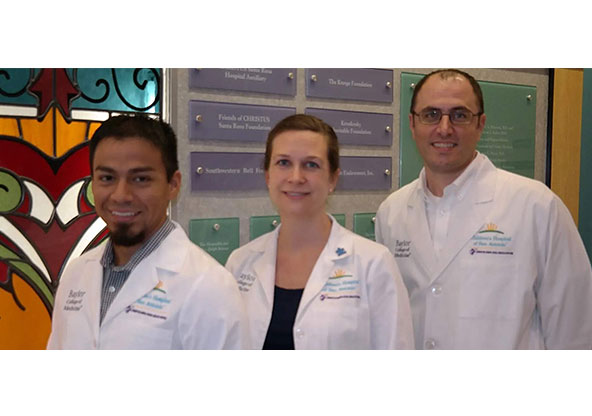There Remains No Evidence That Vaccines Cause Autism
Melissa Svoboda, MD, Pediatric Neurology, Director, Autism Program
Jonathan Crews, MD, MS, Pediatric Infectious Diseases
CHRISTUS Children’s

Although allegations arise from time to time about a link between autism and childhood vaccines, the medical community has spent the last 30 years examining this question numerous times with the same conclusion – there is no link between autism and vaccines.
As health care professionals and parents, we want what is best for children – ours and yours. Multiple large studies have been performed by independent researchers from around the world and have included different groups of children. Overwhelmingly, these studies concluded there is no evidence to support an association between vaccines and autism.
These concerns started when Dr. Andrew Wakefield, a gastroenterologist, published a study in 1998 where he associated the onset of autism symptoms with the timing of the MMR (measles, mumps, rubella) combination vaccine. Wakefield was later found to have knowingly falsified data and to have financial interests in the study, including a pending application for an alternative measles-only vaccine.
Once his fraud was discovered, the journal redacted the study and Wakefield was stripped of his United Kingdom medical license. Unfortunately, he decided to make a documentary on his journey that has stirred up much of this controversy.
Two large studies performed outside of the United States highlight the lack of association between the MMR vaccine and autism. In a study from Denmark which included 537,303 children – the rate of autism was compared between children vaccinated with the MMR and unvaccinated children. The researchers found no difference in the rate of autism between the two groups.
The second study was conducted in Japan, where the rate of autism was compared between a group of children who received the combination MMR vaccine and another group who received the measles-only vaccine. Again, there was no difference in the rate of autism between the groups. In 2014, researchers in Australia reviewed all studies done on this topic, which involved over 1.2 million children, and found no link between any vaccine or preservative and autism.
So why has there been an increase in autism? Autism rates have steadily increased throughout the world. This is in part due to better training and greater emphasis placed on identifying individuals with autism. Doctors and specialists are now more capable of recognizing risk factors and detecting mild, subtle symptoms of autism. This accounts for most of the “epidemic” increase we have seen in autism.
So what are the causes of autism? There is not a single known cause for autism, but the general consensus is that it involves multiple factors. Genetic factors appear to be the most important contributor.
With many voices offering opinions on this topic, it can be hard for parents to know what is best for their child. In newspapers, television, and social media, you can find someone with an opinion on this topic. Unfortunately, many of these are just that – opinions – and they omit any substantial evidence for their position. The continued claims of a link between vaccines and autism are a distraction to the autism community and have already led to outbreaks of life-threatening infections, such as the measles outbreak in 2014.
Vaccine refusals (including delays) put not only our children at risk, but also affect other children – ones who cannot receive vaccinations due to a weakened immune system or young infants who have not already received these vaccines.
As health care providers for children, we strongly believe it is important for families to understand that vaccines do not cause autism. Vaccines protect our children from life-threatening and dangerous diseases. Personally, we each have young children at home. As parents, we chose to vaccinate our own children following CDC and American Academy of Pediatrics guidelines because we believe they are safe and are not associated with autism. We strongly encourage you to vaccinate your child. Like you, we want the best for them.
If you have any questions about vaccines, please have a conversation with your pediatrician.
